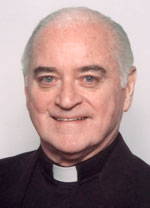Many people these days fall into the trap of inactivity. They become utterly passive. For instance, when they read the Scripture quote, “Ask and you shall receive,” they think that God is a servant, waiting to do their bidding. Unfortunately, it means something quite different.
Allow me to explain.
Let’s use the example of a person named Tom. Tom wants to find a job, but he never hunts for one. Tom seems to pray incessantly and apparently waits in the hope that God will send an employer to his door with a great offer. The truth is that, except for salvation itself, God helps those who help themselves.
Inactivity can lead to sloth, and in the Catechism of the Catholic Church, we are warned in No. 2094: “Acedia or spiritual sloth goes so far as to refuse the joy that comes from God and to be repelled by divine goodness.”
In the elderly, inactivity is a normal state of being. Because of low levels of energy, the elderly are excused. As long as one is grateful to God, there is no chance of committing any sin related to inactivity. Just pray for the grace to be kind to your caretakers, and you will be fulfilling what Jesus asked of you, when he said, “Whatever you did for one of these least brothers of mine, you did for me.”
We’ve all heard, “God helps those who help themselves.” But it is a saying not found in the Bible. When it comes to saving one’s soul, just the opposite is true. Help comes from above. The Lord’s death on the cross is the great sign of how far his love has gone for each of us.
To get to heaven, we are dependent on the Lord’s mercy and love. So the rule “God helps those who help themselves” only applies in matters of daily life. Jesus is not only the cause of our joy, but on the cross he also is the symbol of heroic self-denial given in the name of love.
Even when it comes to contemplation, be careful not to be sucked into the belief that the annihilation of the will is the correct way to contemplate. True prayer is in the will to give ourselves to God. The will is active in Christian contemplation, not passive. God is the creator; we are the creatures.
Even when it comes to prayer, don’t fall into the trap of inactivity in the name of religion. Be a person who does things, be active, don’t be a couch potato. If you are an elderly person, be kind, relax, enjoy and follow the advice of St. Augustine: “Do what you can and then pray that God will give you the power to do what you cannot.”
PREVIOUS: Missing in translation and Communion for lesbians and their children
NEXT: Can a Christian who is not a Catholic receive a sacrament?



Share this story